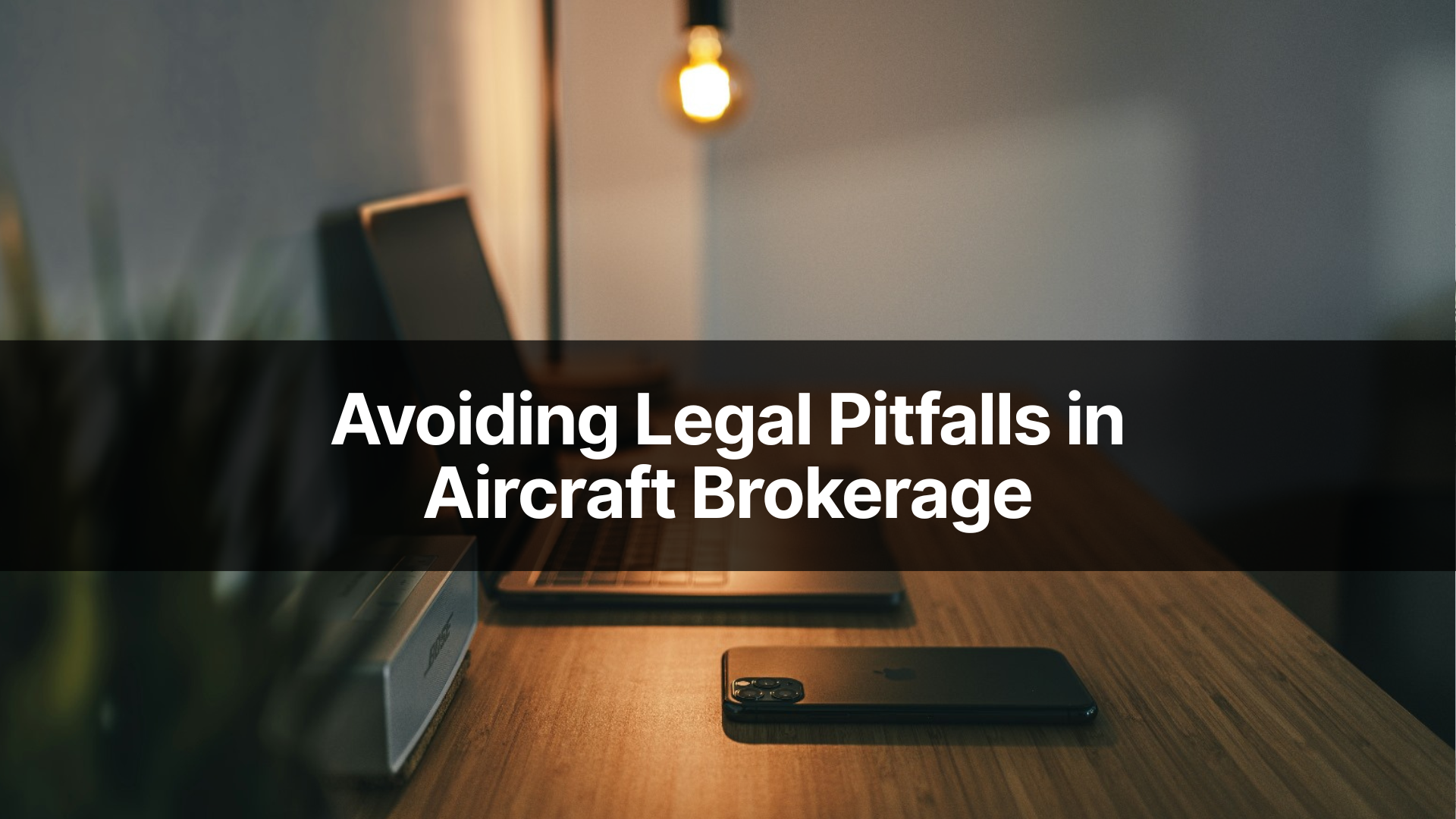Avoiding Legal Pitfalls in Aircraft Brokerage
By Keanu Diez, ABA Member.
Aircraft brokerage can be a fun, lucrative business—until you get slapped with a lawsuit or lose a commission because you missed a legal detail. Trust me, you don’t want to learn these lessons the hard way.
Here are the biggest legal pitfalls aircraft brokers face, and how you can avoid them.
1. Watch Your Advertising
It’s tempting to hype a listing. “Impeccable condition!” “Motivated seller!” “Priced to sell!”
Here’s the problem: if it’s not true, it’s misrepresentation, and it can get you and your client in trouble.
What you need to do:
- Verify specs, logbook status, and maintenance history before advertising.
- Don’t promise what you can’t deliver.
- Avoid phrases like “like new” unless it truly is.
The FTC and state laws don’t mess around when it comes to false advertising. If a buyer proves you misrepresented an aircraft, you could lose your commission or end up in court.
2. Be Careful What You Say
Sometimes, it’s not what’s in the ad, but what you say on the phone or over email that can get you into trouble.
If you tell a buyer “the engines are on program” but they’re not, that’s on you. If you say “no damage history” but there was a gear-up landing ten years ago, you’re on the hook.
Rule of thumb: “If you’re not 100% sure, don’t say it.”
Always verify with the seller or documentation before confirming any details. It’s better to say “Let me double-check and get back to you” than to be wrong.
3. Use Clear Agreements
Handshake deals are a fast track to disputes. Use a clear, written agreement with your clients covering:
- Your commission structure.
- The term of your listing.
- When and how you get paid.
It protects you, your client, and the integrity of the transaction.
4. Payment Compliance
Here’s one that trips up new brokers: where the money comes from matters.
- Use a reputable escrow company (never handle large client funds directly).
- Be cautious of funds from high-risk jurisdictions without proper documentation.
- Watch out for scams disguised as buyers, especially in cross-border deals.
- Following proper payment procedures protects you from getting caught in money laundering investigations or fraud disputes.
5. Understand Licensing & Regulations
In some states or countries, aircraft brokerage may fall under real estate or business brokerage licensing laws.
It’s your responsibility to know the requirements where you operate.
Even if your state doesn’t require a license, it’s good practice to:
- Keep accurate records.
- Disclose your role clearly.
- Operate transparently with both buyers and sellers.
6. Bottom Line
Aircraft brokerage can be a smooth ride or a legal minefield, depending on how you operate.
- Advertise honestly.
- Confirm before you speak.
- Use clear agreements.
- Follow payment best practices.
- Know the rules in your area.
That’s how you protect your business, your clients, and your hard-earned commissions.
Ready to Start?
At ABA, we’re committed to training the next generation of aircraft brokers. If you’re serious about entering the industry the right way, check out our mentorship program, resources, and broker community.
About the Author
Keanu Diez is an ABA member and active aircraft broker, helping owners and buyers navigate transactions safely while building a sustainable brokerage business. Contact Keanu via ABA for training or co-broker opportunities.
